Have you ever used your iPhone 15 on a hot summer day and noticed that it’s overheating? This is a common problem, especially if you’re using your iPhone for demanding tasks like gaming or video editing. But what causes your iPhone to overheat in the first place?
The most likely cause of iPhone 15 overheating is using the iPhone in a hot environment. This can happen if you are using your iPhone in direct sunlight, in a hot car, or in a humid environment.
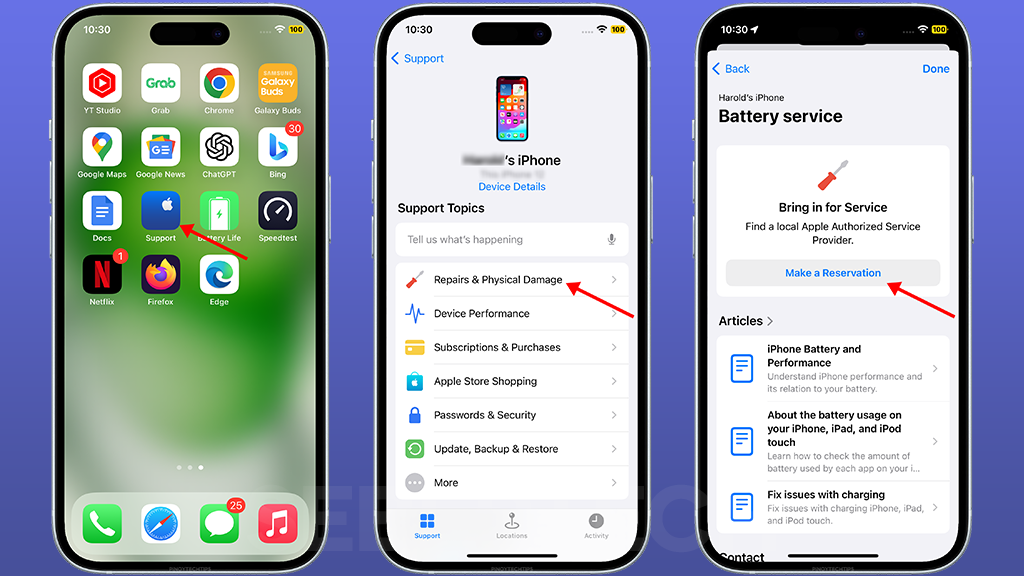
When you use your iPhone in a hot environment, the internal components of the device heat up. This is because the components are working harder to keep up with your demands. The heat can then build up inside the device and cause it to overheat.
Sections
Why is my iPhone 15 overheating?
The most common causes of an iPhone 15 overheating are:
- Using the iPhone in a hot environment. This can happen if you are using your iPhone in direct sunlight, in a hot car, or in a humid environment.
- Using the iPhone for demanding tasks. This can include playing games, watching videos, or using graphics-intensive apps.
- Having a lot of apps open at the same time. This can put a strain on the iPhone’s processor and cause it to overheat.
- Having a malware infection. Malware can run in the background and use up resources, which can cause the iPhone to overheat.
- A hardware problem. If your iPhone is overheating after you have tried all of the above troubleshooting steps, it is possible that there is a hardware problem with your device. In this case, you may need to contact Apple Support for further assistance.
ALSO READ: iPhone 15 Won’t Turn On? Here Are 5 Ways To Fix It!
Turn off your iPhone and check the environment
You need to turn off your iPhone and check the environment if it is overheating. This is because overheating can damage the internal components of your iPhone and shorten its lifespan.
Turning off your iPhone will stop the internal components from working and generating heat. This will give the iPhone a chance to cool down.
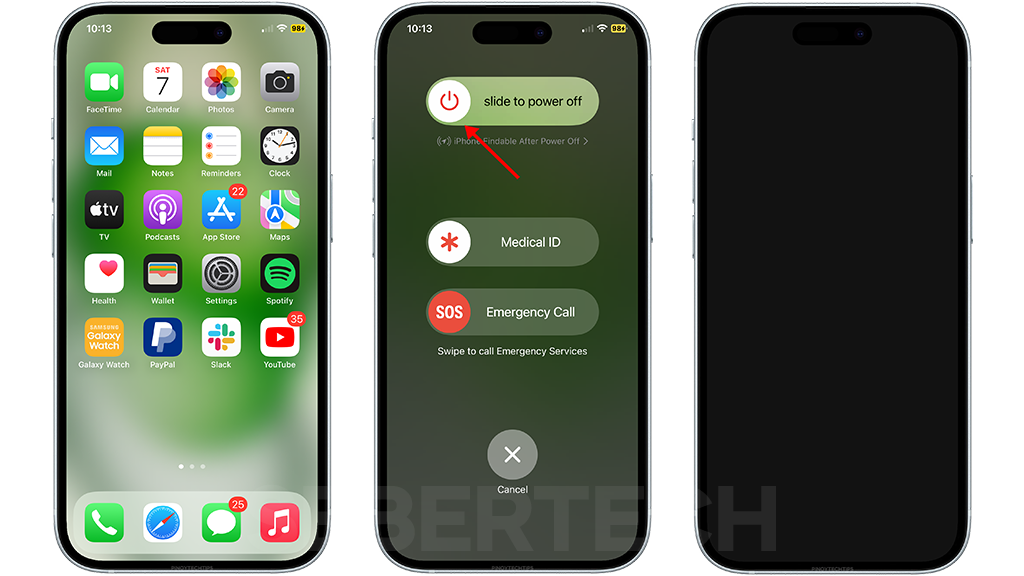
Checking the environment is important because it can help you to identify the cause of the overheating. If you are using your iPhone in a hot environment, such as in direct sunlight or in a hot car, moving to a cooler environment will help to cool down your iPhone.
To turn off your iPhone, press and hold the side button and the volume down button at the same time until you see the power off slider. Then, drag the slider to the right to turn off your iPhone.
To check the environment, look around and see if there is anything that could be causing your iPhone to overheat. For example, if you are using your iPhone in direct sunlight, move to a shaded area. If you are using your iPhone in a hot car, turn on the air conditioner.
Remove the case
You should remove the case from your iPhone if it is overheating because cases can trap heat. This can prevent the iPhone from cooling down properly and can cause it to overheat even more.
To remove the case from your iPhone, simply grip the edges of the case and pull it off. Be careful not to damage the iPhone in the process.
Once the case is removed, the iPhone will be able to cool down more quickly. You can also try placing the iPhone in a cool place, such as a fan or in front of an air conditioner.
If you have a case that is designed to dissipate heat, such as a case with vents, you may not need to remove it. However, if your iPhone is still overheating, it is best to remove the case to help it cool down.
Turn down the brightness
You have to turn down the brightness of your iPhone when it is overheating because the screen is one of the biggest sources of heat on the device. When you turn down the brightness, you are reducing the amount of power that is being used to power the screen, which can help to reduce the amount of heat that is generated.
To turn down the brightness of your iPhone, you can use the following steps:
- Open the Control Center by swiping down from the top-right corner of the screen.
- Drag the brightness slider to the left to decrease the brightness.
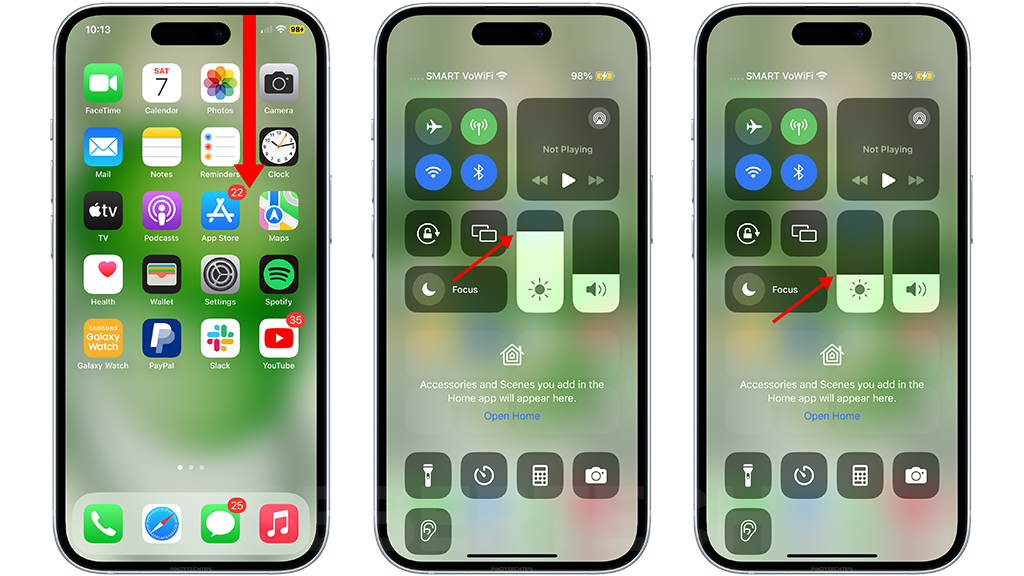
You can also turn down the brightness of your iPhone by going to Settings > Display & Brightness and dragging the Brightness slider to the left.
Turning down the brightness of your iPhone is a simple and effective way to help reduce the amount of heat that is generated by the device. This can help to prevent the device from overheating and protect the internal components from damage.
Close unused apps
You have to close unused apps to prevent your iPhone from overheating because unused apps can run in the background and use up resources. This can put a strain on the iPhone’s processor and cause it to overheat.
To close an unused app, follow these steps:
- Swipe up from the bottom of the screen to open the App Switcher.
- Swipe left or right to find the app you want to close.
- Swipe up on the app to close it.
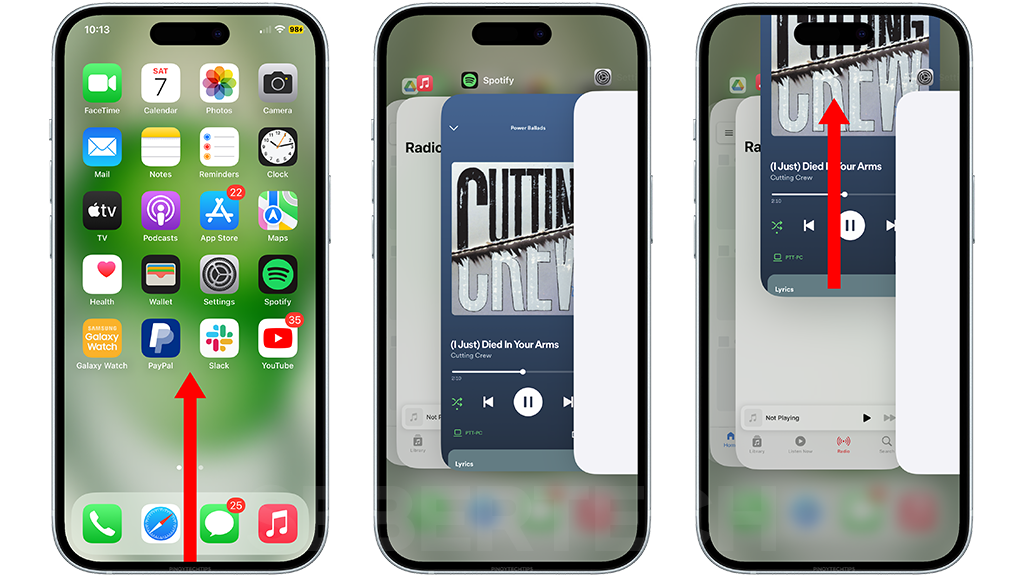
You can also close all of your unused apps at once by swiping up from the bottom of the screen, holding your finger in the middle of the screen for a few seconds, and then swiping up on all of the apps in the App Switcher.
Closing unused apps can help to reduce the workload on your iPhone’s processor and prevent it from overheating. This is especially important if you are using your iPhone for demanding tasks like gaming or video editing.
Force restart your iPhone
You may need to force restart your iPhone if it is overheating. This is because a force restart can clear any temporary glitches or bugs that may be causing the overheating.
To force restart your iPhone 15:
- Press and quickly release the volume up button.
- Press and quickly release the volume down button.
- Press and hold the side button until you see the Apple logo.
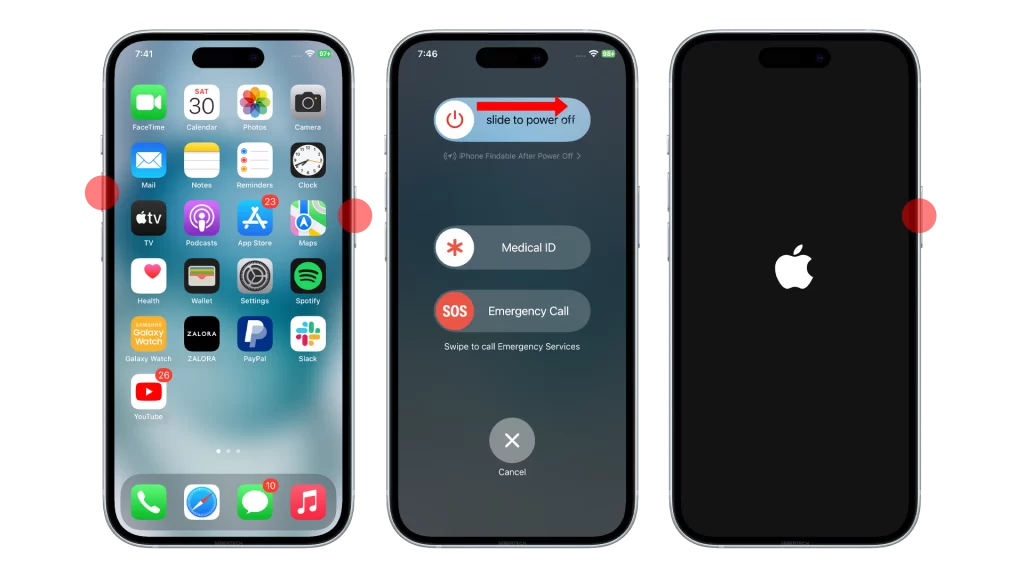
Once your iPhone has restarted, check to see if it is still overheating. If it is, you may need to try other troubleshooting steps, such as cooling down your iPhone or contacting Apple Support.
Update your iPhone
You should update your iPhone for a number of reasons, including to improve security, performance, and battery life. Software updates also often include bug fixes that can address overheating issues.
If you are experiencing overheating problems with your iPhone 15, updating to the latest version of iOS is a good place to start. Apple regularly releases software updates that include improvements to thermal management, which can help to reduce overheating.
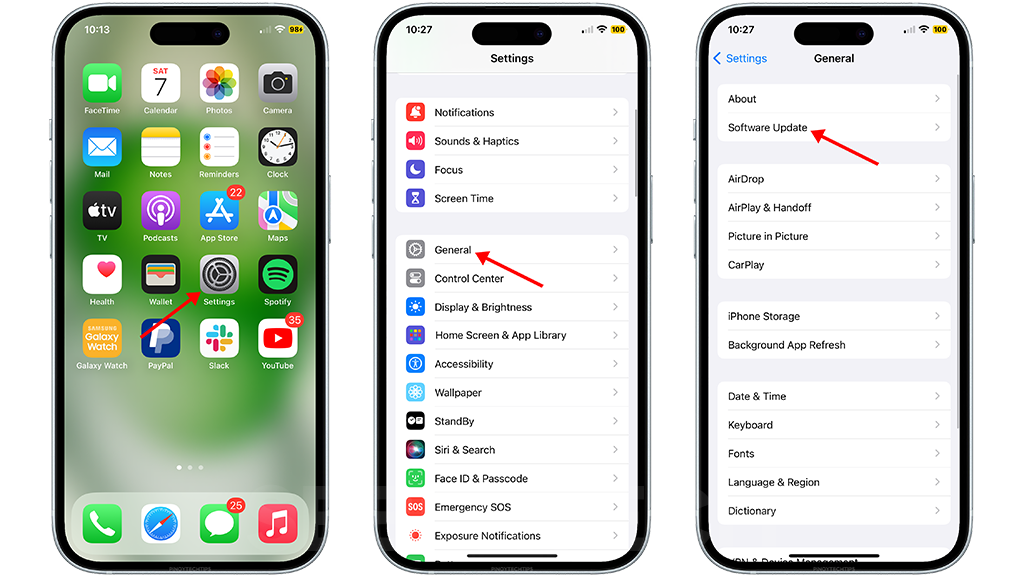
To update your iPhone, go to Settings > General > Software Update. If an update is available, tap Download and Install.
Contact Apple Support
You should contact Apple Support if you have tried all of the troubleshooting steps in the article and your iPhone is still overheating. Apple Support has access to more advanced troubleshooting tools and resources, and they may be able to identify and fix the problem.
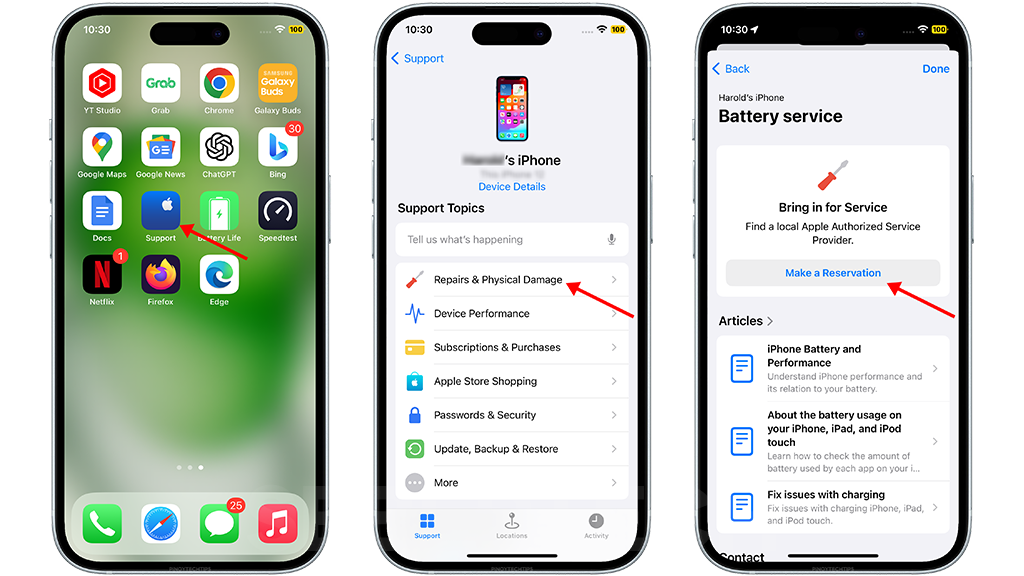
Here are some of the things that Apple Support may do to help you fix the overheating problem on your iPhone:
- Run diagnostic tests to identify the cause of the problem.
- Provide you with additional troubleshooting steps to try.
- Repair or replace your iPhone if necessary.
To contact Apple Support, you can visit the Apple Support website, call them at 1-800-MY-APPLE, or chat with them online.
FAQs
Can my iPhone 15 catch fire if it overheats?
It is extremely unlikely that your iPhone 15 will catch fire if it overheats. Apple has a number of safety features in place to prevent this from happening. For example, if your iPhone overheats, it will automatically shut down to cool down.
Will overheating damage my iPhone 15?
Overheating can damage your iPhone 15 over time. When your iPhone overheats, the internal components of the device are working harder than usual. This can put stress on the components and cause them to wear out more quickly.
Can I use my iPhone 15 in the water to cool it down?
No, you should not use your iPhone 15 in the water to cool it down. This could damage your iPhone and void your warranty. If your iPhone is overheating, the best thing to do is to turn it off and place it in a cool place.